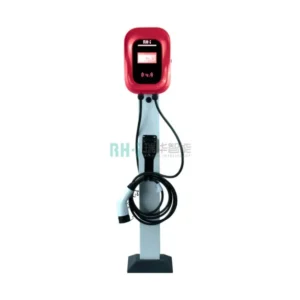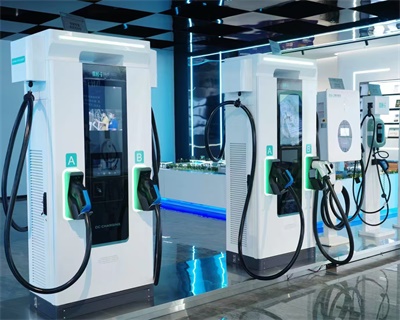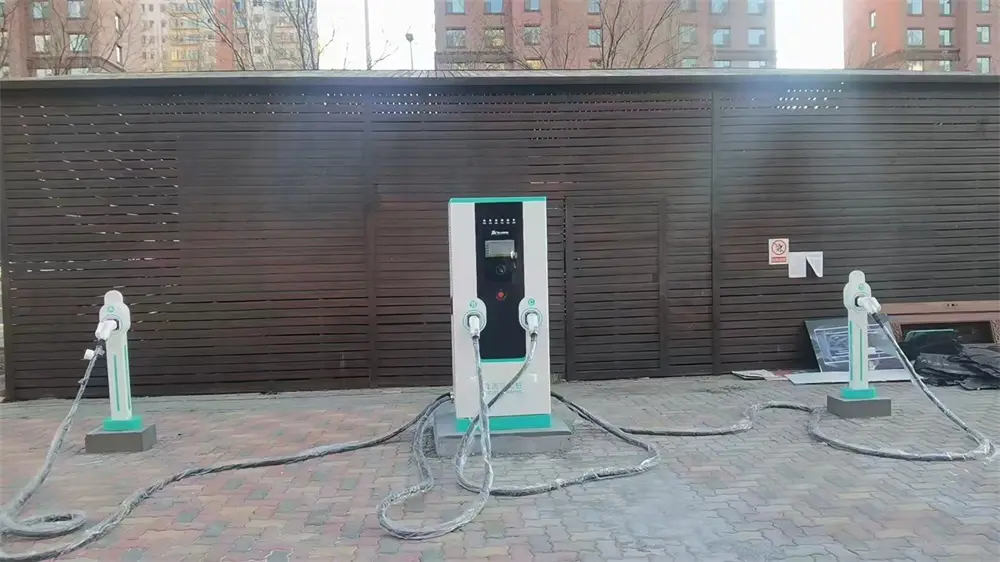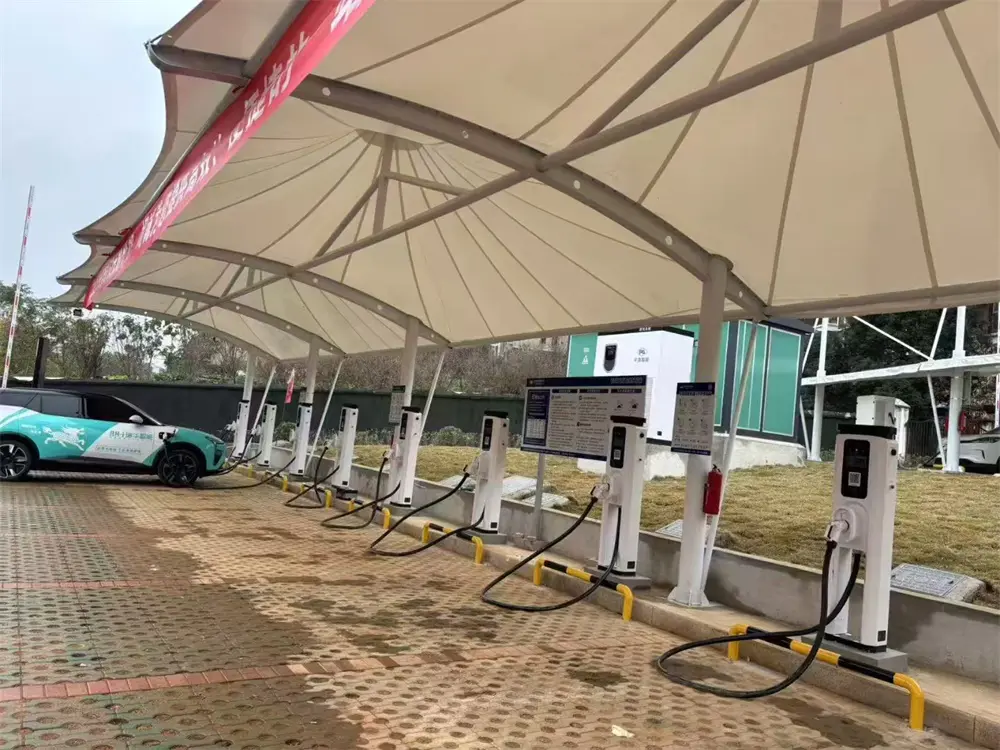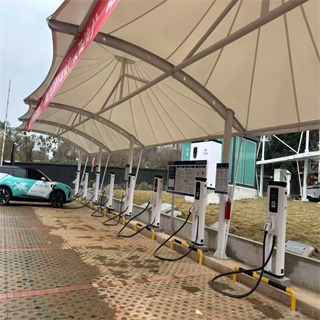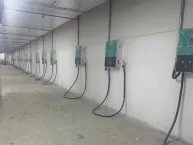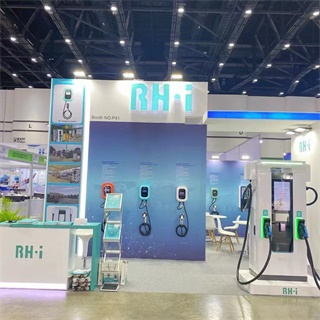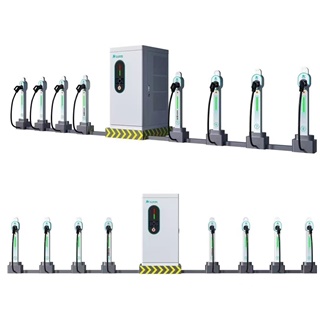Best 100 AMP EV Charger, Level 2 & Home 22 kW
Designed for homes with limited power supply, the 100 AMP EV charger is the perfect solution for homeowners who want to charge their EVs without overloading their electrical system. By integrating advanced load management technology, our chargers ensure a safe and efficient charging experience, even in homes with 100 AMP electric service.
22 kW EV Charger Specification:
| Feature | Details |
| Model | Level 2 19.2 kW EV Charger |
| Power | 7kW / 11kW / 19.2 kW |
| Size | 256 * 320 * 131mm (W * H * D) |
| Weight | 6.5KG (Wallbox), 7.0KG (Wallbox), 7.5KG (Wallbox) |
| Installation | Wall-mounted or column stand |
| Work Voltage | AC 230V ±15%, 400V AC ±15% |
| Input Mode | Single-phase or 3-phase |
| Output Voltage | 230V AC, 400V AC |
| Rate Current | 32A |
| Working Temperature | -20℃ to +50℃ |
| Safety | IP54 |
| Suitable for | 99% of different EV brands |
| Features | Small size, high safety performance, easy installation, simple use |
| Application | Wide application scope: Credit card, 4G internet, and more |
| Protection | Surge protection, short circuit, overcurrent, over temperature, overload, leakage protection, etc. |
| Connection | Supports OCPP 1.6J |
| Start Mode | APP, RFID Card |
What is Load management?
Load management is a smart technology that monitors and controls the power usage in your home, making sure the electrical demand from your EV charger and other household appliances doesn’t exceed the safe limit of your electrical system (in this case, the 100 Amp service).
In simple terms, it optimizes how power is distributed and consumed in your home to prevent electrical overloads while allowing you to charge your electric vehicle without compromising the operation of other devices and appliances.
How Does Load Management Work?
Power Monitoring: Load management systems continuously track your home’s overall energy consumption. They measure how much power is being used by various appliances, including the EV charger.
Dynamic Power Distribution: Based on the real-time power usage, the system dynamically adjusts the charging speed of your EV charger to ensure it doesn’t draw more power than what is available without exceeding the 100 Amp limit.
Prioritization: In some systems, load management can prioritize power distribution. For example, if multiple appliances are using power simultaneously, the system can prioritize the EV charger or other critical appliances based on your preferences or charging needs.
Safety Features: If your home’s total power consumption nears the 100 Amp limit, the system will automatically reduce the EV charger’s power usage to prevent tripping circuit breakers or damaging the electrical infrastructure.
Why is Load Management Important?
Prevents Overloading: In homes with a 100 Amp electrical service, overloading is a real concern when multiple high-power devices (like EV chargers, HVAC systems, water heaters, etc.) are running at once. Load management ensures that power consumption stays within safe limits.
Cost-Effective Alternative to Upgrading: Upgrading from a 100 Amp service to a 200 Amp service can be costly, involving extensive rewiring and equipment changes. Load management provides a more affordable and less disruptive solution to safely handle the increased demand from an EV charger.
Optimizes Charging Efficiency: By adjusting the charging speed based on available power, load management helps ensure that your EV charger works efficiently without using unnecessary power, which could lead to higher energy bills.
Improves Energy Efficiency: Managing power usage helps reduce overall energy consumption and waste, potentially saving on electricity costs in the long run.
Is Load Management Right for You?
If you have a 100 Amp service and are looking to install an EV charger, load management can be an essential solution to safely charge your electric vehicle without the risk of overloading your electrical system.
If you’re not ready for the expense of upgrading to a 200 Amp service, load management offers a smart, cost-effective alternative that maximizes your home’s existing electrical capacity.
If you want peace of mind knowing that your home’s electrical system is being monitored and managed to prevent damage and ensure safe operation, load management is an ideal solution.









Related Products

16 AMP 3.5 KW EV Charger for Home
Protection level: IP54
Number of guns: single gun design
Charging interface: CCS2, CHAdeMO, GB/T, etc.

30 AMP 7KW Best EV Home Charger
Protection level: IP54
Number of guns: single gun design
Charging interface: CCS2, CHAdeMO, GB/T, etc.

50 AMP 11kw Home Charger for EV
Protection level: IP54
Number of guns: single gun design
Charging interface: CCS2, CHAdeMO, GB/T, etc.

80 AMP 19.2 kw Home Charger for EV
Protection level: IP54
Number of guns: single gun design
Charging interface: CCS2, CHAdeMO, GB/T, etc.

100 AMP 22 kW Home Charger for EV
Protection level: IP54
Number of guns: single gun design
Charging interface: CCS2, CHAdeMO, GB/T, etc.




